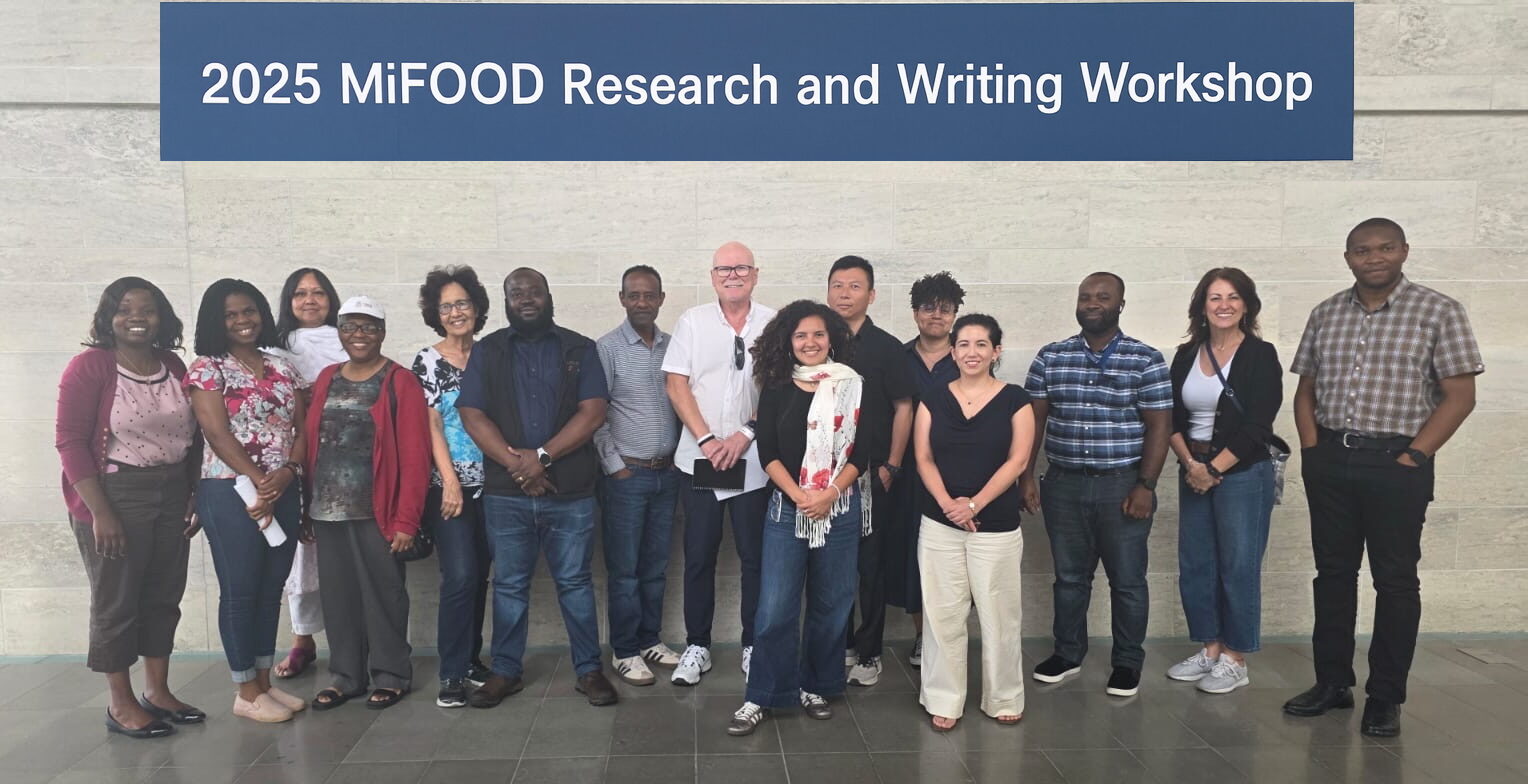The MiFOOD Network hosted its first-ever Research and Writing Workshop from August 5–8, 2025, at the Balsillie School of International Affairs in Waterloo, Canada. Designed as a creative and immersive capacity-building event, it brought together MiFOOD researchers from Canada, Namibia, Mozambique, Jamaica, Ecuador, Mexico, and South Africa to sharpen research and writing skills, learn new quantitative and qualitative methods, and accelerate the completion of project outputs.
Funded by the SSHRC, CIHR, NFRF, and IDRC, the workshop focused on research outputs from two major projects associated with the MiFOOD Network: 1. “Assessing and Mitigating the Food Insecurity Consequences of COVID-19 Public Health Measures on Marginalized Refugees and Migrants in Canada, Latin America and Africa” funded by CIHR and 2. the “Women Feeding Cities Project: Building a Gender-Transformative, Resilient, and Sustainable Informal Food Sector for COVID-19 Recovery in Africa, Latin America, and the Caribbean” funded by NFRF and IDRC. The primary goal of the workshop was to facilitate the completion of draft chapters for the forthcoming book Living Through COVID-19 as Migrants and Refugees (Springer Nature) and article manuscripts for the planned Sustainability journal special issue Bridging Informal Divides: Migrant Lives in Urban Food Systems in the Global South.
Before the formal sessions began, participants visited a local organic blueberry farm to pick blueberries. They also joined a study tour of the Waterloo Region Community Garden Network, where they interacted with migrants from various African and Asian countries engaged in growing organic and culturally significant foods in Waterloo. The week also included a guided tour of the St. Jacobs Farmers’ Market, where the team learned about the market’s history and operations from the market manager, and gained insight into vendor experiences through conversations with food vendors. These activities deepened the participants’ understanding of community-based approaches to food systems and provided a real-world context for the themes explored in their research.
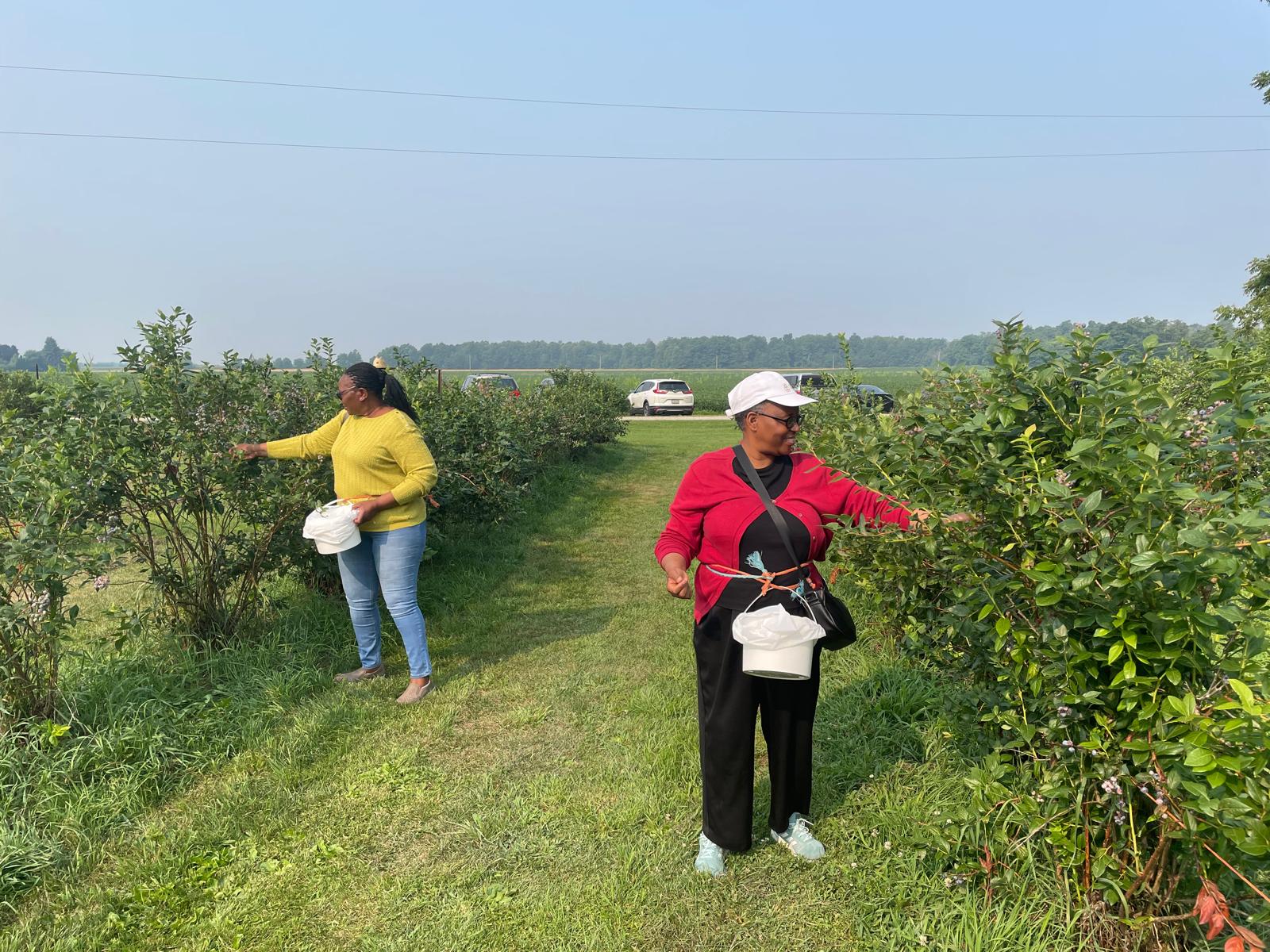
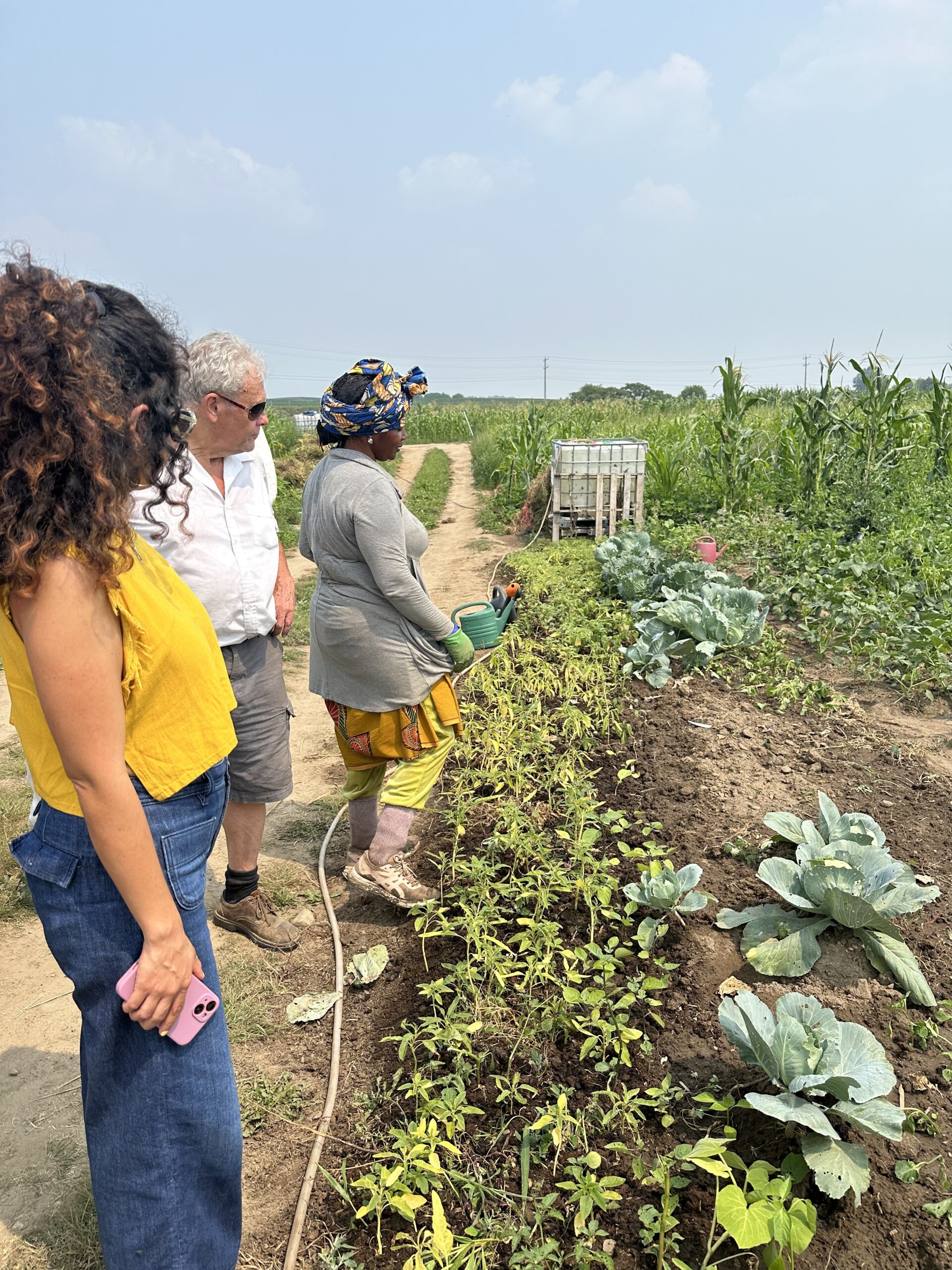
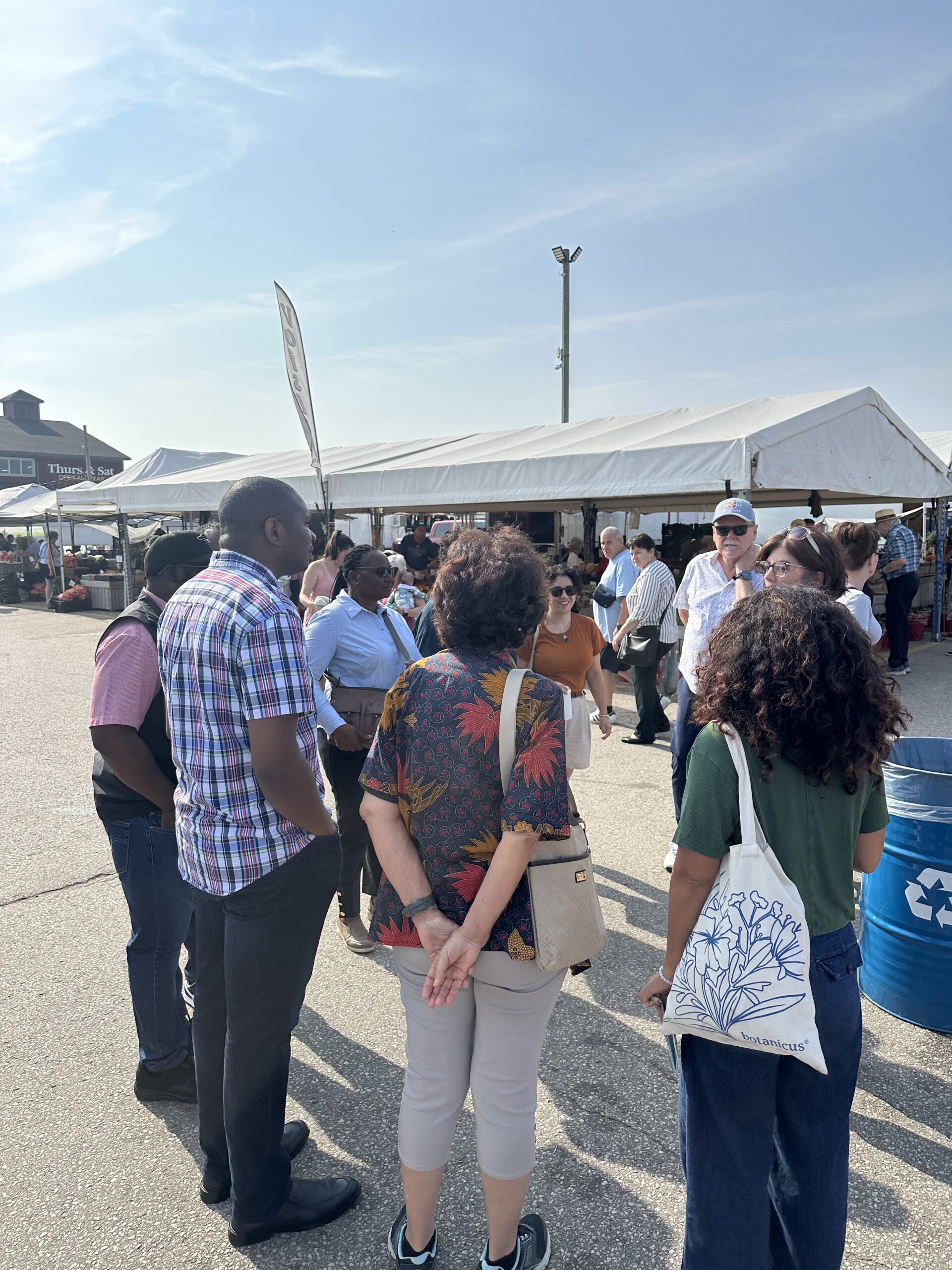
The workshop featured a mix of academic writing sessions, methodology deep dives, and hands-on skill building in literature review, data interpretation, quantitative and qualitative analysis, and innovative participatory methods such as Photovoice. It facilitated mutual learning on the use of Stata for quantitative analysis, Covidence for scoping reviews, and NVivo for qualitative data analysis. The workshop also broke new ground by facilitating a discussion on the responsible and ethical use of AI tools in research and academic writing. The workshop structure balanced intensive writing time with collaborative learning and mentorship, creating what one participant described as an “effective and outcome-driven workshop”.
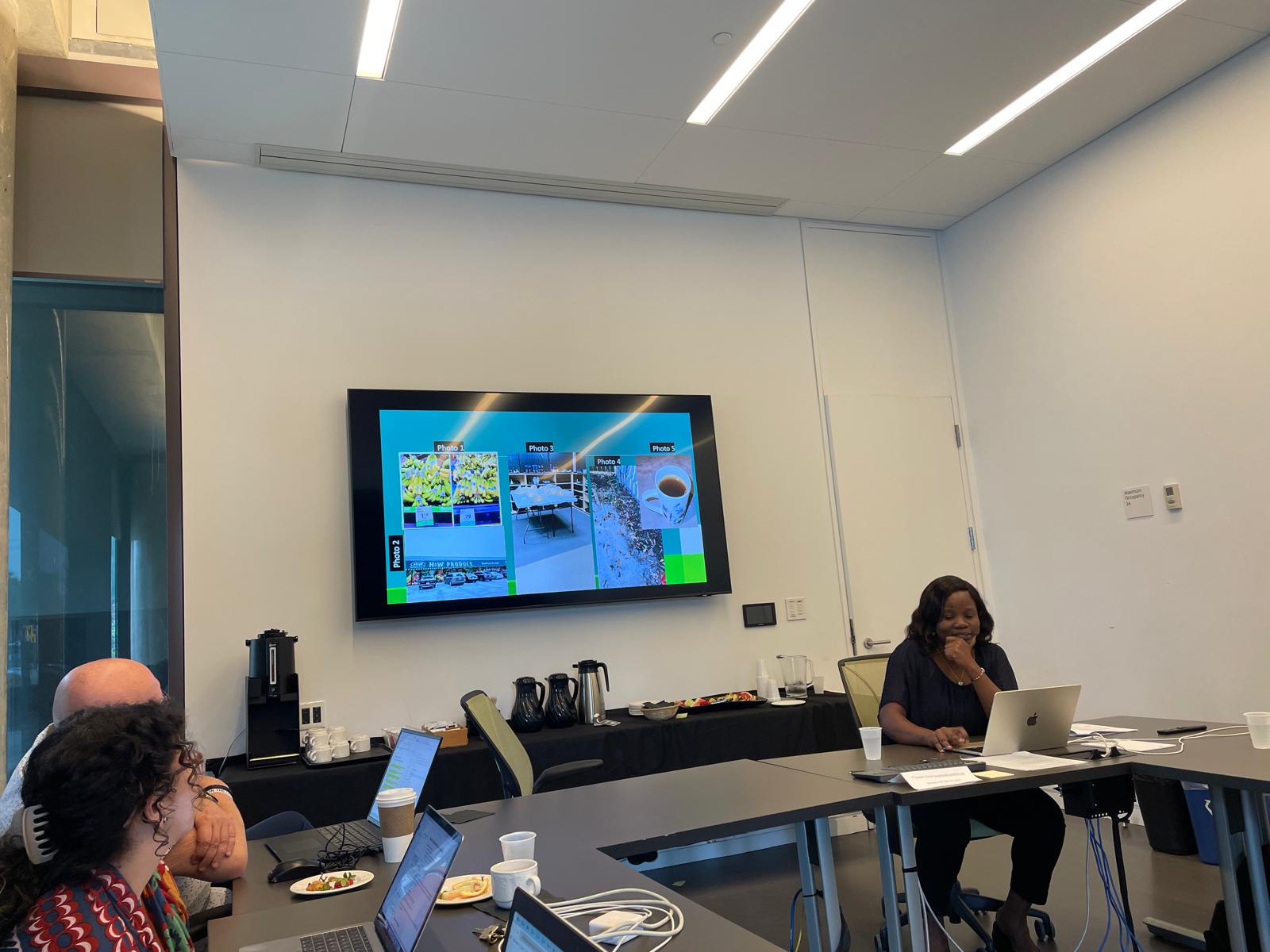
Feedback from participants in the wrap-up session highlighted both professional and personal benefits:
- Methodological insights – Participants gained new skills in qualitative and quantitative research, literature reviews, and Photovoice, with a focus on policy-relevant outputs.
- Mentorship and collaboration – The workshop fostered a “stimulating international environment” for sharing experiences, exchanging feedback, and building trust for future joint work.
- Inspiration and momentum – Many felt “motivated to work on papers/chapters” and more confident in structuring and refining their manuscripts.
- Community engagement lessons – Field visits reinforced the value of connecting with community organizations, migrants, and local food systems actors.
In the Wrap-Up Session, Natalie Dietrich-Jones of Jamaica noted that learning about how markets contribute to food security, meeting migrants engaged in sustainable farming, and exploring AI as a tool for paper structuring were key takeaways. Sean Sithole from South Africa emphasized the value of mentorship and learning new research techniques. At the same time, Elizabeth Thomas-Hope also of Jamaica appreciated the rare opportunity to engage in farm labour herself, linking her experiences to broader themes of migrant work. Others, like Ines Raimundo (Mozambique), Mercedes Eguiguren (Ecuador and Canada) and Sujata Ramachandran (Canada), stressed the benefits of informal yet focused discussions that inspired their own research. Most participants expressed particular appreciation for the informative and engaging Photovoice sessions led by Elizabeth Onyango of the University of Alberta.
By the end of the week, participants had made substantial progress on their manuscripts, developed stronger methodological toolkits, and strengthened cross-country research ties. As MiFOOD Director Jonathan Crush concluded, the Research and Writing workshop achieved a strong balance between capacity building in methodological training and advancing the writing of chapters and papers.
Download the Workshop Programme.
